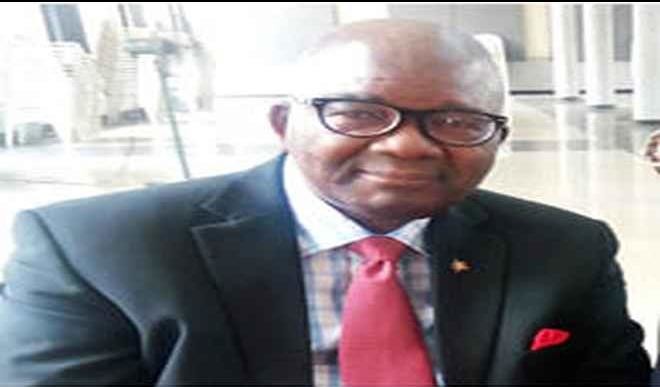There can’t be rift between AGF, EFCC Ag. Chair – Awomolo
The Attorney General and Minister for Justice, Abubakar Malami (SAN), recently announced plans to create a central body that will coordinate all criminal prosecutions in the country. In this interview, Chief Adegboyega Awomolo (SAN), a Life Bencher with about 40 years post-bar experience, speaks on the constitutionality of the decision, among others. Excerpts: The AGF […]


The Attorney General and Minister for Justice, Abubakar Malami (SAN), recently announced plans to create a central body that will coordinate all criminal prosecutions in the country. In this interview, Chief Adegboyega Awomolo (SAN), a Life Bencher with about 40 years post-bar experience, speaks on the constitutionality of the decision, among others. Excerpts:
The AGF recently said a new investigation unit to coordinate all investigations will be created to harmonise the works of the Economic and Financial Crimes Commission (EFCC), the Independent Corrupt Practices Commission (ICPC) and the police. What do you think of this decision?
The Attorney General of the Federation (AGF) is the chief law officer of the federation; he is the chief prosecutor with the constitutional power to prosecute any person and also the power to withdraw any prosecution against any person.
All the agencies that are prosecuting, the police, the EFCC, the ICPC, the NAFDAC, the Customs and others take their powers from the AGF.
So, if the AGF says he wants to do something, I am sure he is acting within his powers and no court person can challenge him apart from the President who appointed him.
Do you see this move as capable of injecting momentum into the fight against corruption?
The law does not prescribe how he should do his job. It is for him to fashion how the best way to do his job and to achieve the maximum result that will help the state.
So I believe he must have thought about several options and if he now sees this option as the best and decides to follow it, no one can stop him aside the President and the court. And the court will not stop him if he follows due process.
There are insinuations of rift between the AGF and the Acting Chairman of the EFCC especially as regards the investigation and prosecution of high profile cases. What is your view on this?
I do not see any rift. The acting chairman of EFCC is a subordinate officer to the AGF. How can there be rift? It can only be insubordination. When a master speaks, he speaks. When the AGF speaks, he speaks.
There can’t be any rift. It is a question of a superior officer and a subordinate. Nobody can question his decision except the courts and the President who appointed him and if the President is not satisfied with his performance, he removes him. But that’s not to say that as long as he remains the AGF, he cannot give orders, instructions and commands. He is in charge.
You used the word insubordination; do you see this affecting the anti-graft war?
I am not saying there is insubordination. What I am saying is that where a superior officer gives an instruction to a subordinate officer, a refusal to comply is insubordination. I am giving this as a general example.
Are there existing laws in Nigeria that criminalise hate speech?
Yes, we have laws. Where an individual steps beyond the bounds, the laws are clear and there are many of them that have been made in our jurisprudence. For example, Section 393(1) of the Penal Code provides for the offence of “injurious falsehood” which is punishable with imprisonment for a term which may extend to two years or with fine or with both.
Section 416 of the same penal code provides for the offence of “Inciting disaffection to the government” and it is punishable with imprisonment of seven years or fine or both. Sections 417 and 418 of the Penal Code also.
Outside the Penal Code, do we still have other laws or acts that criminalise hate speech?
Yes, sections 59 and 60 of the Criminal Code. In fact, under the Cyber Crime (Prohibition, Prevention etc) Act, 2015, the National Assembly in Section 24 (1) of the Act said, “Any person who knowingly or intentionally sends a message or other matter by means of computer systems or network that – (a) is grossly offensive, pornographic or of an indecent, obscene or menacing character or causes any such message to be so sent; or (b) he knows to be false, for the purpose of causing annoyance, inconvenience, danger, obstruction, insult, injury, criminal intimidation, enmity, hatred, ill will or needless anxiety to another or causes… commits an offence under this Act.”
We have enough laws, but the unfortunate thing is that many people, especially political office holders, speak without seeking or taking legal advice. If they have enough legal advice, they will know that we are not short of laws in the country.
